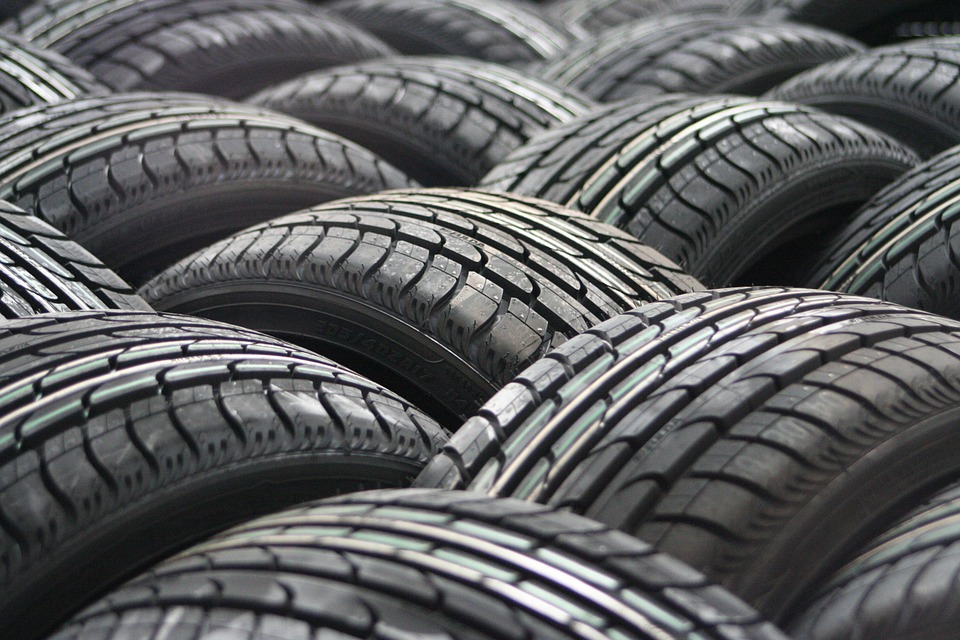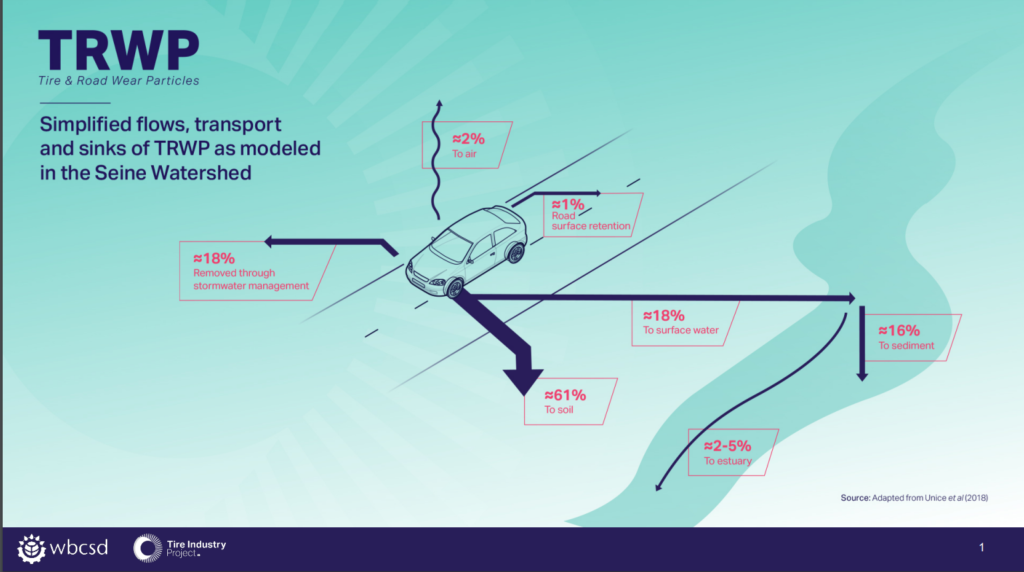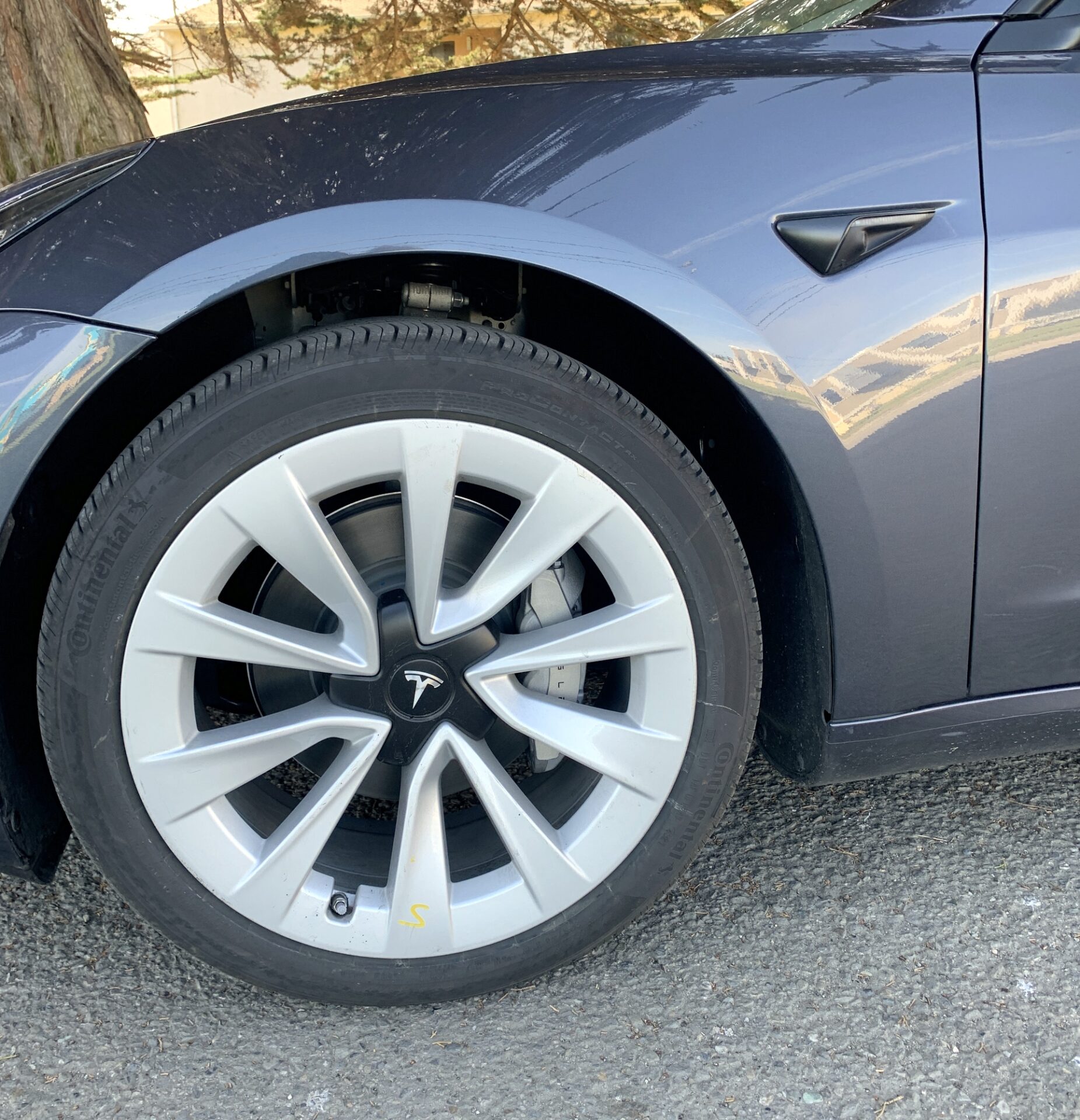How Keeping Your Tires Inflated Can Help the Environment
Basic Care Can Reduce Contamination
Checking tire pressure is a subtle yet impactful way to care for the environment. Chemicals and waste are released from aging tires into habitats, harming everything from soil needed for agriculture to fish populations. Learn how a regular tire pressure check improves the ecological footprint of EVs and internal combustion engines of all sizes.

When Tires Cause Environmental Harm
Fluctuating temperatures, constant pressure and friction from roadways alter tire psi marginally over time. The flatter the tire, the more drag occurs. Neglect results in damage and poor tread, producing more chemical and microparticle discharge. Keeping tires at their manufacturer-recommended psi is critical for reducing impact.
Regulatory bodies have overseen vehicle emissions for years, while these other environmental concerns remain barely attended despite a tire’s composition. They generally contain synthetic polymers, fossil fuel-based softeners and environmentally toxic additives.
Experts finally began putting tire and road wear particles (TRWPs) under a microscope. They jeopardize environments because research has been minimal and relies on inaccurate testing materials and scenarios. Recent attention reveals concentrates of TRWPs in river water and sediment, air, roadside soil and road runoff that cause ecotoxicological effects. Tire byproducts harm wildlife, but trophic transfer suggests harm to human health, too.
How Tire Waste Spreads
Popped tires and rubber debris are physical representations of how poorly maintained tires end up as waste, threatening wildlife and waterways.
Learning how to use equipment like air compressors and gauges to safely and productively fill tires to appropriate amounts is essential. However, degrading tires have a nearly invisible impact on the environment. For example, the particulate runoff is usually less than 1 millimeter.
EV enthusiasts and automotive mechanics alike will know of 6PPD-q. It is a critical chemical responsible for lengthening a tire’s life. However, the reinforcement comes at a price. When the chemical seeps off tires and into nature, it compromises the life spans of flora and fauna. Salmon and bivalves are only a few of the affected species. How tire runoff impacts phytoplankton is a more significant concern, given how reliant aquatic ecosystems are on them.
Tires release microplastics the more their condition deteriorates. The quality and state of the brakes affect how severely tires degrade, causing them to send off particles in larger quantities. Microplastics are pervasive enough that revolutionary global laws, such as the Euro 7 standards in the EU, seek to study and regulate them.

What Initiatives Strive for Eco-Conscious Tires
Up-and-coming standards signal the environmental impact of uninflated tires is becoming more prioritized. Researchers are performing more accurate testing and developing ways to make detecting particles in the wild easier. Traditional methods like spectroscopy are unreliable, and water sampling may prove more meaningful.
Companies work to forge a reimagined tire alongside monitoring and oversight efforts. It is an ideal advancement as EVs become a popular answer for transportation’s carbon footprint.
For example, Korean designers are considering how materials impact how much the tread releases microplastics. Their solution is a storage system that captures the microparticles as they release so they do not reach environments. Other companies seek alternative materials like guayule- and dandelion-based rubber.
Tire Care Is Environmental Care
Taking a few moments a month to check tire pressure and refilling as necessary could save species and habitats from unnecessary chemical and particle waste. Even if people cannot see their impact while driving, it happens constantly. Raising awareness mitigates complacency and encourages action because every air refill benefits local wildlife.

purchase lasuna generic – cheap himcolin generic himcolin price
neurontin 600mg usa – gabapentin online buy buy sulfasalazine 500mg generic
order besifloxacin online cheap – buy sildamax online cheap brand sildamax
benemid ca – carbamazepine order carbamazepine 400mg sale
buy generic celebrex 200mg – order indocin 50mg sale buy indomethacin 50mg capsule
buy mebeverine online cheap – cilostazol for sale order pletal online
voltaren us – buy aspirin 75mg pill aspirin for sale online
order rumalaya pill – cheap shallaki tablets amitriptyline 50mg oral
mestinon 60 mg cheap – buy imitrex online cost imuran
baclofen usa – buy feldene 20mg generic feldene 20mg brand
voveran cheap – buy diclofenac for sale purchase nimodipine sale
buy mobic without a prescription – purchase toradol generic order generic toradol 10mg
omnicef 300 mg over the counter – buy omnicef pill buy cleocin sale
purchase artane – buy trihexyphenidyl without prescription purchase cheap emulgel
order accutane 10mg pills – order deltasone 20mg sale buy deltasone 20mg pill
order prednisone 5mg online cheap – buy prednisolone 40mg online buy generic zovirax over the counter
purchase acticin – permethrin cream tretinoin usa
betamethasone 20gm price – betnovate cost benoquin online buy
buy flagyl 400mg pills – metronidazole 200mg pills buy cenforce 50mg generic
augmentin 375mg price – cheap levoxyl without prescription levothroid buy online
order losartan 50mg sale – keflex order online keflex brand
cheap cleocin 150mg – how to get indomethacin without a prescription order indocin 50mg generic
eurax uk – crotamiton us order aczone without prescription
provigil tablet – buy promethazine no prescription melatonin 3 mg pill
order bupropion 150mg generic – order shuddha guggulu for sale oral shuddha guggulu
buy capecitabine 500 mg for sale – mefenamic acid online order order danocrine 100 mg sale
purchase prometrium generic – ponstel vaginal cream fertomid online
alendronate over the counter – fosamax 70mg brand medroxyprogesterone 5mg tablet
aygestin 5mg sale – oral lumigan yasmin canada
г‚·гѓ«гѓ‡гѓЉгѓ•г‚Јгѓ« гЃ©гЃ“гЃ§иІ·гЃ€г‚‹ – г‚·г‚ўгѓЄг‚№ жµ·е¤–йЂљиІ© г‚·г‚ўгѓЄг‚№ и–¬е±ЂгЃ§иІ·гЃ€г‚‹
buy crixivan cheap – purchase emulgel cheap order diclofenac gel for sale
provigil online – order cefadroxil for sale purchase lamivudine pills
ivermectin 12 mg for people – buy candesartan 16mg sale carbamazepine 400mg us
buy prednisone 10mg generic – deltasone for sale buy captopril 25 mg pill
cheap amoxicillin tablets – order amoxil generic buy ipratropium online
zithromax 500mg ca – azithromycin 500mg tablet buy nebivolol 5mg for sale
cheap omnacortil generic – order generic progesterone 200mg buy generic progesterone online
buy gabapentin 100mg sale – clomipramine for sale online order itraconazole 100 mg for sale
order furosemide – betnovate 20gm cheap3 buy betnovate cream
buy amoxiclav pill – purchase ketoconazole online order duloxetine without prescription
buy doxycycline online – purchase monodox pills glucotrol 10mg tablet